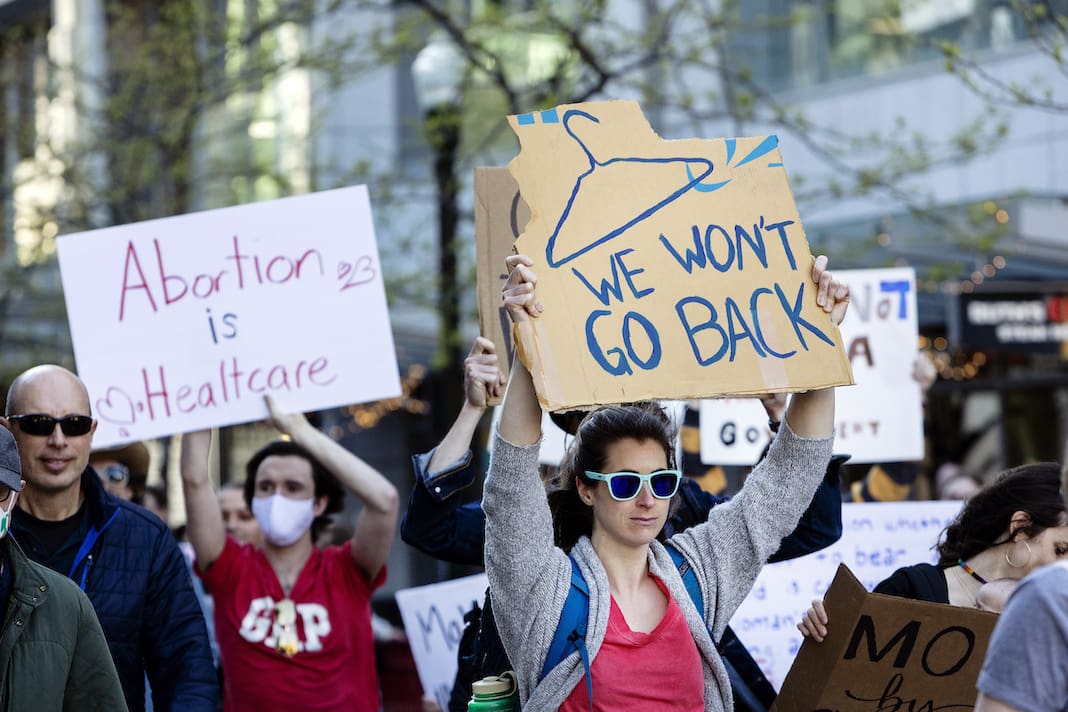GOP attacks on abortion just force women to have them later
The Republican obsession with abortion is forcing delays in care.

Anti-abortion activists and conservative GOP legislators consistently work to undermine abortion rights. In doing so, they push people to have abortions later in pregnancy.
Recently, they suffered a brief setback when a federal judge ruled that the Food and Drug Administration can’t enforce its restriction requiring people to physically travel to a doctor to get pills for a medication abortion during the COVID-19 pandemic.
High-profile anti-abortion groups immediately attacked the ruling. Lila Rose, the president of Live Action, said the medication abortion drug “has killed more than 3.7 Million innocent children.” Susan B. Anthony List president Marjorie Dannenfelser released a statement saying abortion rights activists were “exploiting the COVID-19 pandemic to push their long-sought goal of expanding dangerous chemical abortion drugs.”
These attacks on medication abortion — an incredibly safe procedure — are just one of the types of attacks and restrictions that force delays, inevitably forcing people to obtain abortions later in pregnancy.
Another is the Hyde Amendment. First passed by Congress in 1977 as a response to Roe v. Wade, it prohibits government insurance programs, including Medicaid, from covering abortions. People with lower incomes who rely on Medicaid for their medical care — a group that consists disproportionately of women of color — must find other sources of money for an abortion. Finding money takes time, and as the Later Abortion Initiative notes, “the cost of an abortion increases with gestational age and is an important factor in abortion delay.”
Thanks to anti-abortion conservatives, people seeking abortions also face mandatory waiting periods. According to Guttmacher, 26 states have some type of waiting period of at least 24 hours, but sometimes more. People must make two separate trips to a clinic when a state imposes a waiting period between the initial appointment and the procedure.
Guttmacher’s 2014 Abortion Patient Survey found that people in states with a waiting period “were more likely than those in states without such laws to have at least two weeks elapse between calling to schedule an appointment and receiving an abortion.”
That delay arises in part because people must sometimes travel significant distances to get an abortion. Studies in both Alabama and Utah found that even when mandatory periods were short, people waited two weeks “due to a combination of reasons, including limited appointment availability, conflicting work schedules, and travel arrangements (e.g., finding transportation, coordinating child care).”
The conservative campaign to implement early abortion bans — some at as early as six weeks — would also create delays, in large part by requiring people to travel much farther to obtain an abortion. The Guttmacher Institute, which studies reproductive health laws, noted that there was an “unprecedented” wave of such bans in 2019.
Georgia, Kentucky, Louisiana, Mississippi, and Ohio passed early bans, all of which sparked immediate litigation and are still in court.
If someone misses the opportunity to have an abortion in their home state because of bans like these, they must travel elsewhere. This requires dealing with a number of the same logistical issues as in the case of waiting periods, like making arrangements for transportation, child care, and days off work.
The Jacobs Institute of Women’s Health at George Washington University notes that people who had to travel to receive abortion services found these logistical issues acted as barriers to obtaining an abortion. Needing to make these arrangements and navigate these barriers can delay access to abortion services.
These barriers, alone or together (several states have multiple restrictions), drive abortion later in pregnancy. A study published in the journal Contraception found that the “overwhelming majority of second-trimester patients would have preferred to have had their abortion earlier.” The study further found that Black people and those with less education would most benefit if access to early abortion was increased.
Anti-choice activists and GOP legislators have created a thicket of restrictions that are difficult to navigate. With that, they’re managing to make abortions much more difficult to obtain and pushing people into later abortions.
Published with permission of The American Independent Foundation.
Recommended

Ohio doctors fear effects of emergency abortion care case set to go before U.S. Supreme Court
A federal law that allows emergency departments to treat patients without regard to their ability to pay will be under U.S. Supreme Court scrutiny this week, and Ohio doctors are concerned about the case’s local impact on emergency abortion care.
By Susan Tebben, Ohio Capital Journal - April 23, 2024
Biden on abortion rights: President expects to give speech Tuesday on new Florida 6-week ban
‘Having the president of the United States speaking out loud and with confidence about abortion access is a great thing’
By Mitch Perry, Florida Phoenix - April 22, 2024
Group launches effort to explore ballot initiative restoring abortion access in Idaho
Organizers say fundraising begins now for inclusion on the 2026 ballot
By Kelcie Moseley-Morris, Idaho Capital Sun - April 19, 2024







































































